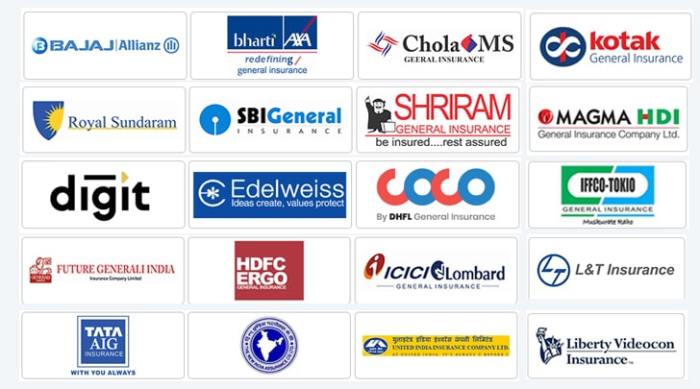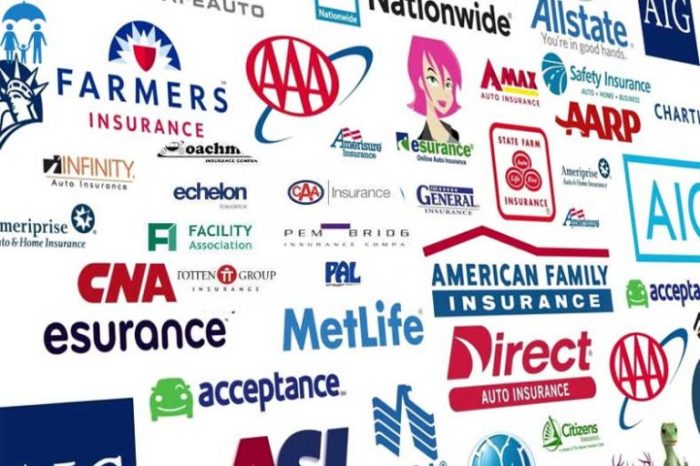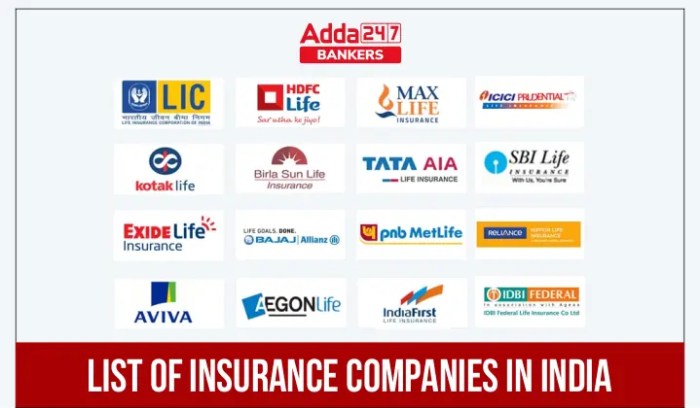
Are all insurance companies the same? This is a question that many people ask when they are shopping for insurance. The truth is that there are a lot of differences between insurance companies, even when they offer similar types of coverage. From the way they calculate premiums to how they handle claims, these differences can have a significant impact on your experience as a policyholder.
In this article, we will explore the key factors that differentiate insurance companies, including their business models, financial stability, coverage options, customer service, and claims handling processes. We will also provide tips for comparing insurance quotes and choosing the right company for your needs.
Insurance Company Differences: Are All Insurance Companies The Same

It’s easy to think that all insurance companies are the same, but that’s not true! They come in different shapes and sizes, each with its own unique personality and quirks. Understanding these differences can help you find the best fit for your needs.
Types of Insurance Companies
Insurance companies can be categorized based on their ownership structure and profit motives.
- For-profit companies: These companies are owned by shareholders and aim to generate profits. They typically offer a wider range of products and services and may have higher premiums to cover their profit margins.
- Non-profit companies: These companies are typically owned by a specific group, such as a church or a community organization. They focus on providing insurance to their members at lower costs and may offer limited products and services. Their premiums are typically lower, as they do not have to generate profits for shareholders.
- Mutual companies: These companies are owned by their policyholders. They aim to provide affordable insurance and may offer dividends or other benefits to their policyholders. Mutual companies often have a strong focus on customer service and may have lower premiums than for-profit companies.
Business Models and Structures
Insurance companies operate using various business models and structures.
- Direct writers: These companies sell their insurance directly to customers through their own agents or online platforms. They have more control over their operations and can offer more competitive pricing.
- Independent agents: These agents represent multiple insurance companies and can shop around for the best rates and coverage for their clients. They provide a broader range of options but may have higher commissions.
- Brokers: These professionals specialize in specific types of insurance, such as commercial or international insurance. They work with businesses to develop customized insurance programs and may have a deep understanding of the industry.
Financial Stability and Ratings
Financial stability is crucial for insurance companies. It ensures they can pay claims when needed. Independent rating agencies, such as A.M. Best, Moody’s, and Standard & Poor’s, assess the financial strength of insurance companies and assign them ratings.
- A.M. Best is a leading rating agency that focuses on the insurance industry. Its ratings are based on a company’s financial strength, operating performance, and business profile.
- Moody’s and Standard & Poor’s are well-known credit rating agencies that also assess the financial stability of insurance companies. Their ratings are based on a company’s financial strength, debt levels, and overall risk profile.
Key Differentiating Factors
Insurance companies are not created equal. They differ in terms of coverage options, customer service, and claims handling processes.
- Coverage options: Some companies offer a wide range of coverage options, while others focus on specific types of insurance. It’s important to compare the coverage offered by different companies to find the best fit for your needs.
- Customer service: Good customer service is essential for any insurance company. Look for companies with a track record of providing prompt and helpful service to their customers.
- Claims handling processes: How quickly and efficiently a company handles claims can make a big difference in your experience. Choose a company with a streamlined claims process and a reputation for fair and prompt settlements.
Coverage and Policy Variations

Insurance companies, like your favorite pop stars, have their own unique style and flair. Just like Beyoncé has her own “Sasha Fierce” alter ego, insurance companies offer different levels of coverage and policy terms to fit your individual needs.
Factors Influencing Coverage and Pricing
The cost of your insurance policy and the level of coverage you receive can be influenced by a variety of factors, including your age, location, and risk profile. It’s like picking a seat at a concert; the closer you are to the stage, the more you’ll pay, and the same goes for insurance.
- Age: Younger drivers, often with less experience, may face higher premiums, like a newbie trying to get into a VIP section. On the flip side, older drivers, with more experience on the road, might enjoy discounts, like a seasoned fan getting a backstage pass.
- Location: Living in a high-crime area, like a crowded concert venue, could mean higher insurance costs due to a higher risk of accidents or theft. Conversely, living in a quieter area, like a chill coffee shop, might result in lower premiums.
- Risk Profile: Your driving history, credit score, and even your occupation can influence your insurance rates. Think of it like being a “fanatic” with a history of getting into mosh pits, you might face higher premiums compared to a more laid-back fan.
Discounts and Add-ons
Insurance companies offer a variety of discounts and add-ons to tailor your policy to your needs, like adding a special VIP package to your concert experience.
- Discounts: Good student discounts, safe driver discounts, multi-car discounts, and bundling discounts are like exclusive concert perks, saving you money.
- Add-ons: Additional coverage options, like roadside assistance or rental car reimbursement, can provide extra peace of mind, like having a backstage meet-and-greet with your favorite band.
Bundled vs. Individual Coverage
Choosing between bundled and individual coverage is like deciding whether to buy a concert ticket with a VIP package or just a general admission ticket.
- Bundled Coverage: Bundling your insurance policies, like home, auto, and life insurance, can often result in lower premiums, like getting a discount for buying a concert ticket with a friend. However, you might not get the best rates for each individual policy.
- Individual Coverage: Purchasing individual policies allows you to customize your coverage for each type of insurance, like choosing specific concert tickets based on your preferred seating. However, this might result in higher premiums overall.
Pricing and Cost Comparisons

You might be thinking, “Okay, so insurance companies aren’t all the same, but how much does it really matter when it comes to my wallet?” Well, let’s dive into the world of insurance premiums and see how they can vary.
Factors Influencing Insurance Costs
Insurance premiums are like a personalized price tag for your coverage. Here’s a breakdown of what factors influence the cost of your insurance:
- Demographics: Your age, gender, and location can all impact your premium. For example, young drivers typically pay more because they have less experience on the road.
- Driving History: A clean driving record is your best friend when it comes to insurance costs. Accidents, tickets, and even speeding violations can significantly increase your premium.
- Credit Score: Wait, what? Believe it or not, your credit score can be a factor in your insurance premium. This is because insurance companies use it as an indicator of your financial responsibility.
- Vehicle Type: Sports cars, luxury vehicles, and even those with fancy features can cost more to insure due to their higher repair costs.
- Coverage Levels: The amount of coverage you choose (like liability limits, collision, and comprehensive) directly affects your premium. More coverage means a higher price tag.
Average Insurance Costs
| Insurance Company | Average Annual Premium (for a 2023 Toyota Camry) |
|---|---|
| Company A | $1,200 |
| Company B | $1,050 |
| Company C | $1,350 |
Note: These are just estimates and actual premiums may vary depending on individual factors.
Insurance Quote Comparison Tools, Are all insurance companies the same
It’s like a game of “Price is Right” when it comes to insurance, so don’t be afraid to shop around. Here are some resources that can help you compare quotes and find the best deal:
- Online Insurance Comparison Websites: These websites allow you to enter your information once and receive quotes from multiple insurance companies, making it easy to compare. Popular examples include:
- Compare.com
- Insurance.com
- The Zebra
- Insurance Agents: An independent insurance agent can act as your personal shopper, comparing quotes from different companies and helping you find the best fit for your needs.
Reputation and Financial Stability
When you’re shopping for insurance, you want to make sure you’re dealing with a company that’s not just going to be around when you need them, but also one that’s got a good reputation for taking care of its customers. That’s where reputation and financial stability come in.
Reputation and financial stability are crucial factors to consider when choosing an insurance company. A company with a strong reputation and solid financial standing is more likely to be reliable, trustworthy, and able to meet its obligations to policyholders.
Industry Ratings and Reviews
Independent rating agencies like A.M. Best, Moody’s, and Standard & Poor’s assess the financial strength and creditworthiness of insurance companies. These agencies provide detailed ratings based on factors such as a company’s claims-paying ability, capital adequacy, and overall financial performance. These ratings serve as valuable indicators of an insurer’s stability and ability to honor its commitments to policyholders.
In addition to industry ratings, online reviews and customer feedback can offer insights into a company’s reputation for customer service, claim handling, and overall satisfaction. Websites like Yelp, Trustpilot, and Consumer Reports provide platforms for customers to share their experiences, allowing potential policyholders to gauge a company’s reputation based on real-life feedback.
Financial Stability and Solvency
Financial stability and solvency are critical for any insurance company, as they ensure the company can meet its financial obligations to policyholders. A financially stable company has sufficient capital reserves to cover unexpected claims and other financial risks. This stability provides confidence to policyholders that their insurance coverage will be there when they need it.
Solvency refers to an insurance company’s ability to pay its debts and meet its financial obligations. Regulators closely monitor the solvency of insurance companies to ensure they can fulfill their promises to policyholders. A company with a strong solvency rating indicates it has sufficient assets and financial resources to cover its liabilities and remain financially viable.
Key Factors Contributing to Reputation and Financial Strength
Several factors contribute to a company’s reputation and financial strength, including:
- Claims-paying ability: A company’s track record of promptly and fairly paying claims is crucial for its reputation.
- Capital adequacy: Having sufficient capital reserves allows a company to weather economic downturns and cover unexpected claims.
- Financial performance: Strong financial performance, as measured by profitability, return on equity, and other metrics, reflects a company’s ability to manage its finances effectively.
- Management team: A company’s management team plays a vital role in setting strategic direction and ensuring sound financial practices.
- Customer service: Providing excellent customer service builds trust and loyalty, contributing to a company’s reputation.
Comparing Financial Performance and Track Records
Comparing the financial performance and track records of different insurance companies can help you make an informed decision. You can review their annual reports, financial statements, and industry ratings to assess their financial strength and stability.
For example, consider comparing the financial performance of two large insurance companies, Progressive and State Farm. Both companies have strong financial reputations and have consistently been rated highly by industry agencies. However, their financial performance may differ in certain areas, such as profitability or return on equity. Analyzing their financial statements and comparing their key metrics can provide insights into their strengths and weaknesses.
Final Wrap-Up
When it comes to insurance, it’s crucial to remember that not all companies are created equal. Taking the time to research and compare different providers is essential to finding the best coverage at a fair price. By understanding the key factors that differentiate insurance companies, you can make an informed decision and choose the provider that best meets your individual needs.
Essential FAQs
What is the best way to compare insurance quotes?
There are many online comparison websites and tools that can help you compare insurance quotes from different companies. You can also contact insurance brokers or agents to get personalized quotes. Be sure to compare apples to apples, meaning make sure the coverage levels are the same for each quote.
What are some common insurance company scams?
Some common insurance scams include fake insurance companies, bait and switch tactics, and inflated premiums. Be sure to research any company thoroughly before purchasing insurance.
What should I do if I have a dispute with my insurance company?
If you have a dispute with your insurance company, you can try to resolve it through their internal complaint process. If you are unable to reach a resolution, you can file a complaint with your state’s insurance department.




